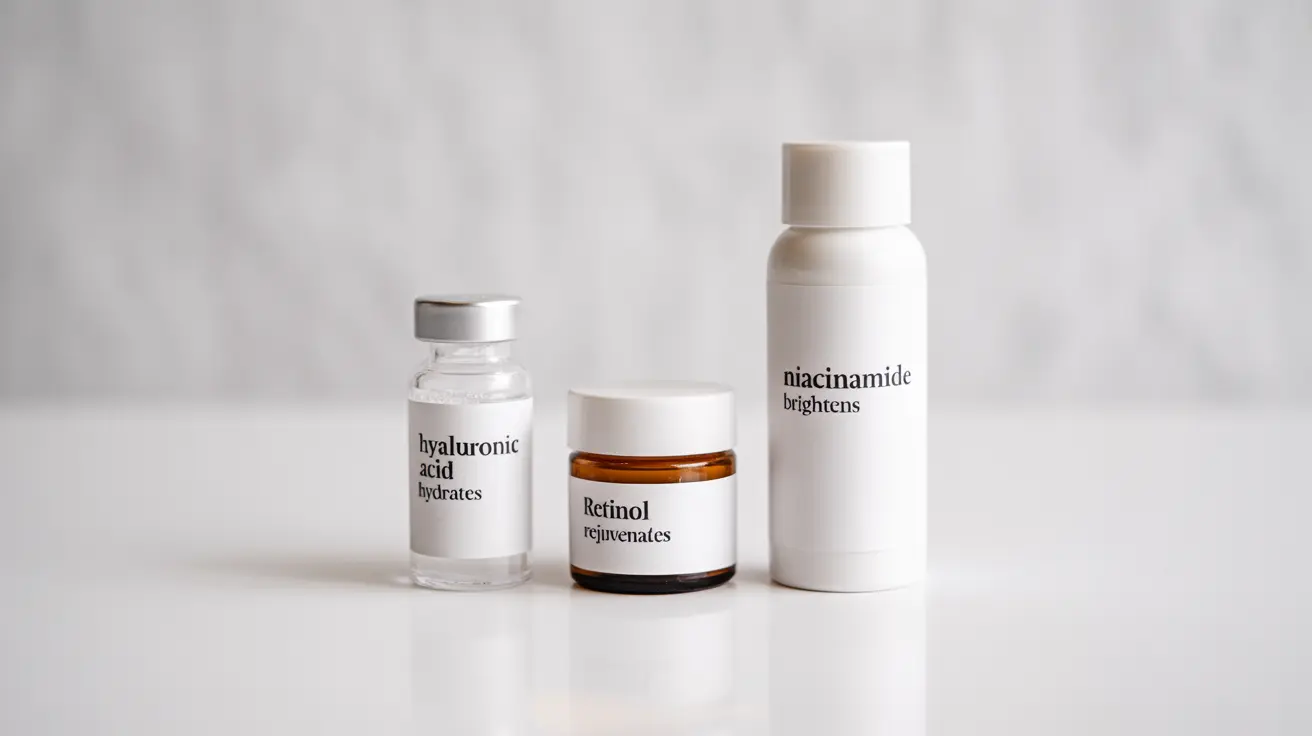Understanding skincare ingredients is crucial for building an effective skincare routine and achieving healthy, radiant skin. With countless products on the market featuring complex ingredient lists, knowing what each component does can help you make informed decisions about your skincare purchases and avoid potential irritants.
In this comprehensive guide, we'll break down the most important skincare ingredients, their benefits, and how to identify which ones are right for your specific skin concerns.
Key Active Ingredients and Their Benefits
Hydrating Heroes
Hyaluronic acid stands out as a powerful hydrating ingredient that can hold up to 1,000 times its weight in water. This naturally occurring substance helps maintain skin moisture levels and can reduce the appearance of fine lines. Another effective hydrator is glycerin, which acts as a humectant to draw moisture into the skin.
Anti-Aging Powerhouses
Retinoids, including retinol and its derivatives, are widely recognized for their anti-aging properties. These vitamin A compounds promote cell turnover, stimulate collagen production, and help reduce the appearance of wrinkles and uneven skin tone. Peptides are another valuable ingredient category that supports skin firmness and elasticity.
Brightening and Evening Agents
Vitamin C is a potent antioxidant that brightens skin tone and helps protect against environmental damage. Niacinamide (vitamin B3) reduces inflammation, regulates oil production, and helps even out skin tone. Alpha-arbutin and kojic acid are also effective for addressing hyperpigmentation.
Understanding Product Labels
Reading skincare product labels requires understanding that ingredients are listed in descending order by concentration. The first five to seven ingredients typically make up the bulk of the product. Look for active ingredients that address your specific skin concerns, but remember that a higher concentration doesn't always mean better results.
Ingredients for Different Skin Concerns
Acne-Fighting Ingredients
For acne-prone skin, look for ingredients like salicylic acid, which unclogs pores, and benzoyl peroxide, which fights acne-causing bacteria. Tea tree oil offers a natural alternative with antimicrobial properties. Niacinamide can help regulate oil production and reduce inflammation.
Natural Oils for Sensitive Skin
Many natural oils provide excellent moisturizing benefits without irritating sensitive skin. Jojoba oil closely mimics the skin's natural oils, while argan oil offers nourishing fatty acids and vitamin E. Rosehip oil contains beneficial vitamins and antioxidants that support skin healing.
Ingredients to Approach with Caution
Some ingredients may cause irritation, especially in sensitive skin. Common irritants include artificial fragrances, alcohol (denatured), and certain preservatives like parabens. Essential oils, while natural, can also cause reactions in sensitive individuals. Always patch test new products before full application.
Frequently Asked Questions
- What are the main benefits of common skincare ingredients like hyaluronic acid, retinol, and niacinamide?
Hyaluronic acid provides intense hydration and plumping effects. Retinol promotes cell turnover and collagen production, reducing signs of aging. Niacinamide helps control oil production, reduces inflammation, and improves skin barrier function.
- How can I read and understand the ingredient list on my skincare products?
Ingredients are listed in descending order by concentration. Focus on the first 5-7 ingredients as they make up most of the product. Look for active ingredients that target your specific skin concerns, and be aware of potential irritants.
- Which skincare ingredients are best for treating acne and reducing inflammation?
Salicylic acid, benzoyl peroxide, and niacinamide are effective for treating acne. Other beneficial ingredients include tea tree oil, zinc PCA, and azelaic acid. These help reduce inflammation, fight bacteria, and regulate oil production.
- Are natural oils like argan and jojoba oil effective moisturizers for sensitive skin?
Yes, both argan and jojoba oils are excellent moisturizers for sensitive skin. They're non-comedogenic, meaning they won't clog pores, and closely mimic the skin's natural oils. These oils provide hydration while being gentle enough for sensitive skin types.
- What ingredients should I avoid if I have sensitive or allergy-prone skin?
Those with sensitive skin should avoid artificial fragrances, harsh alcohols, certain preservatives (like parabens), and potent essential oils. Other potential irritants include high concentrations of acids, sodium lauryl sulfate (SLS), and synthetic dyes.
Remember to always introduce new skincare ingredients gradually and perform patch tests to ensure your skin responds well to them. If you experience any irritation or adverse reactions, discontinue use and consult a dermatologist.




